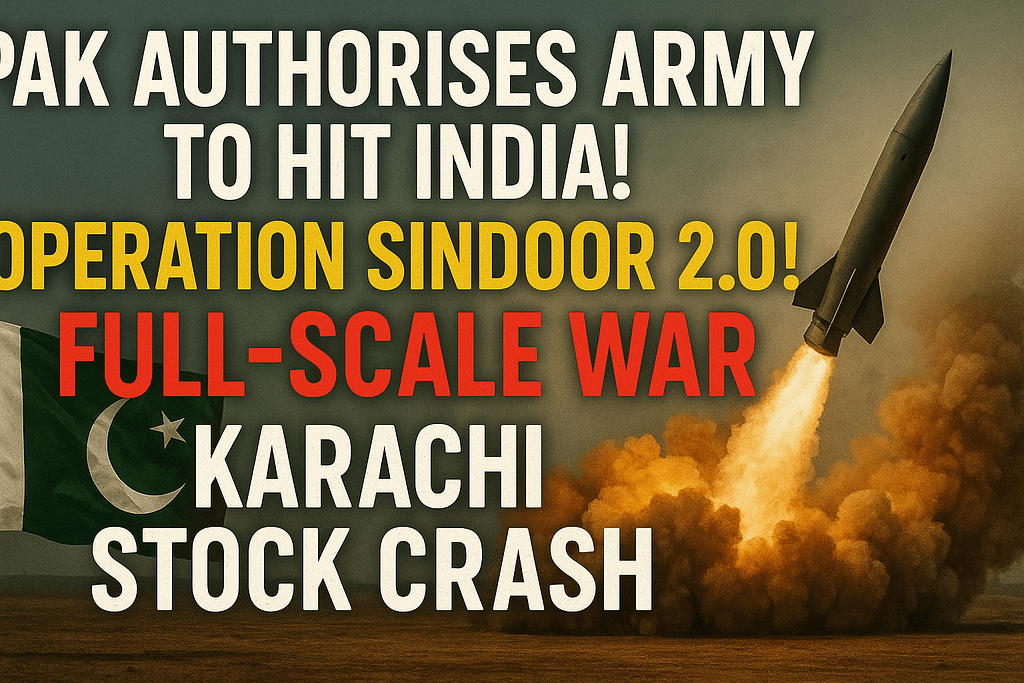
Islamabad/New Delhi, May 7 –
In a highly volatile turn of events, Pakistan’s top military leadership has reportedly been given full authority to retaliate militarily against India following the shocking revelations of Operation Sindoor 2.0—a fresh round of alleged cross-border strikes carried out by Indian special forces earlier this week.
The development comes amid skyrocketing tensions between the two nuclear-armed neighbors, and has already sent tremors across diplomatic corridors and financial markets.
Operation Sindoor 2.0: What We Know
While India has not officially confirmed the operation, multiple defense sources suggest that Indian forces once again targeted terror launchpads across the LoC—this time deeper and with more intensity than the original Operation Sindoor. The strikes are believed to have occurred late Monday night, with drone and artillery support, causing “significant tactical damage.”
Unofficial reports claim that high-value terror facilitators were neutralized, prompting immediate panic in Pakistan’s military circles.
Pakistan’s Response: “Full Authority to Army”
In a late-night emergency session at Pakistan’s GHQ (General Headquarters), the government reportedly delegated operational control to the Pakistan Army, authorising it to “act in national interest without seeking political clearance.”
A military spokesperson, in a rare midnight briefing, stated:
“India has crossed a red line. Our armed forces have been empowered to respond decisively and appropriately. We will not tolerate aggression under any guise.”
This is being seen by analysts as a green signal for possible counter-strikes, setting the stage for a dangerous escalation.
Karachi Stock Exchange Nosedives
Amid fears of a full-blown conflict, the Karachi Stock Exchange (KSE-100) opened to a sharp 1,200-point crash, triggering temporary halts in trading. The Pakistani rupee also dipped sharply against the dollar in early trade.
Financial experts are warning of imminent capital flight, with investor sentiment rattled by both domestic instability and looming geopolitical uncertainty.
Is War Inevitable?
Diplomatic backchannels are reportedly active, with international players including the United States, UAE, and China urging restraint on both sides. However, with mobilization visible on both borders and social media flooded with footage of troop convoys, the threat of open conflict cannot be ruled out.
Indian defense sources remain tight-lipped but confirmed “heightened alert status” across border zones in Jammu, Punjab, and Rajasthan.
International Reaction
The UN Secretary-General has issued an urgent appeal for both countries to “exercise maximum restraint” and “return to dialogue immediately.” Meanwhile, global news outlets are closely monitoring developments, with many comparing the current atmosphere to the post-Uri strike tensions of 2016—only more unpredictable this time.
The Situation Is Fluid
As of now, no official declaration of war has been made by either nation. However, with military posturing intensifying, financial markets crashing, and diplomatic silence growing louder, South Asia may be on the edge of a major security crisis.
Stay with Bharat Global Time for live updates, expert analysis, and verified ground reports on this developing story





